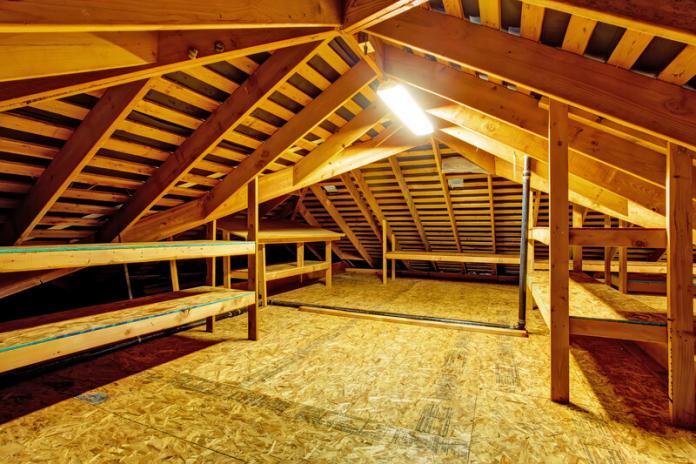When purchasing a home, it’s essential to evaluate every aspect of the property to ensure it’s in good condition. An attic inspection is a vital part of this evaluation process, as it can uncover issues that may affect the home’s overall health and safety. Here’s what you need to know about them.
Why You Need an Attic Inspection
The attic is an essential part of a home’s structure, and an inspection can reveal crucial information about the property’s overall condition. Attic inspections can identify potential problems, such as inadequate insulation, structural damage, or pest infestations. These issues can impact the home’s energy efficiency, indoor air quality, and even the structural integrity of the property. By conducting an attic inspection, home buyers can better understand the property’s condition and make informed decisions about necessary repairs or improvements.
Common Attic Issues
Several common issues can be discovered during an attic inspection. Inspectors pay careful attention to areas that may be prone to water damage, such as your attic. Water damage can result from leaks in the roof, flashing, or plumbing systems, which can lead to mold growth and structural damage if not addressed.
Inadequate insulation is another issue often found in attics. Proper insulation is critical to a home’s energy efficiency and can help reduce heating and cooling costs. Inspectors will assess the type and amount of insulation present, ensuring it meets current standards and is properly installed.
Pest infestations, such as rodents or insects, can also be identified during an attic inspection. Pests can cause structural damage, create health hazards, and negatively impact the home’s overall condition. Identifying and addressing infestations early can prevent further damage and reduce potential health risks.
Why You Need a Professional
While some homeowners may be tempted to inspect their attic themselves, it’s essential to hire a professional for several reasons. First, professional inspectors have the training and experience necessary to identify and assess various issues, such as structural damage or mold growth. They can also provide valuable recommendations for addressing any problems they find. A professional inspector can access hard-to-reach areas in the attic safely, using specialized equipment if needed. This ensures a thorough inspection and minimizes the risk of injury to the homeowner. A professional inspection report can serve as a valuable tool during the home-buying process. The report provides a detailed account of the attic’s condition, which can be used during negotiations or as a basis for requesting repairs from the seller.
Attic inspections are a crucial component of the home buying process, helping to identify potential problems that could impact the property’s overall condition, safety, and energy efficiency. By understanding the importance of attic inspections, being aware of common issues, and recognizing the benefits of hiring a professional, home buyers can make informed decisions and ensure their investment is a sound one.
What are some other areas of the home that should be inspected when buying a house?
When buying a house, it’s essential to conduct a thorough inspection to identify potential issues and ensure that the property is in good condition. Besides the obvious areas like the roof and foundation, here are some other areas of the home that should be inspected:
- Plumbing System:
- Check for leaks under sinks, around toilets, and in the basement.
- Inspect water pressure in faucets and showers.
- Look for signs of water damage on walls and ceilings.
- Electrical System:
- Test light switches, outlets, and electrical panels.
- Verify the condition of the wiring and check for any exposed wires.
- Ensure that the electrical system meets current safety standards.
- Heating, Ventilation, and Air Conditioning (HVAC) System:
- Inspect the furnace, air conditioner, and water heater.
- Check for proper functioning, and ask for maintenance records.
- Verify that the systems are appropriately sized for the house.
- Appliances:
- Test the functionality of major appliances such as the stove, refrigerator, dishwasher, and washer/dryer.
- Check the age and condition of each appliance.
- Windows and Doors:
- Inspect windows for proper sealing, signs of water damage, and functionality.
- Check doors for proper alignment, security, and weather stripping.
- Insulation and Ventilation:
- Assess the insulation in the attic, walls, and basement.
- Check for proper ventilation in attics and crawl spaces.
- Structural Components:
- Inspect the condition of walls, ceilings, and floors for cracks or other damage.
- Check for signs of water damage or mold.
- Examine the condition of the foundation.
- Exterior:
- Inspect the condition of the siding, trim, and paint.
- Check for proper drainage around the property to prevent water damage.
- Look for signs of pest infestations or damage.
- Attic and Crawl Spaces:
- Assess the condition of the roof structure and insulation.
- Look for signs of leaks or pest activity.
- Garage:
- Check the condition of the garage door and its opener.
- Verify the stability of the garage structure.
- Landscaping and Drainage:
- Evaluate the grading around the house to ensure proper drainage.
- Check for potential issues with trees or large bushes close to the foundation.
- Septic System or Sewer Lines:
- If applicable, have the septic system or sewer lines inspected to ensure they are in good working order.
It’s highly recommended to hire a qualified home inspector to thoroughly assess these areas. Additionally, if any issues are identified, you may want to bring in specialists (such as electricians, plumbers, or HVAC professionals) for more in-depth evaluations. This comprehensive inspection process can help you make an informed decision about the condition of the property before purchasing.
Check out this article on The Do’s and Don’ts of Installing Garden Edging: Expert Tips and Tricks








